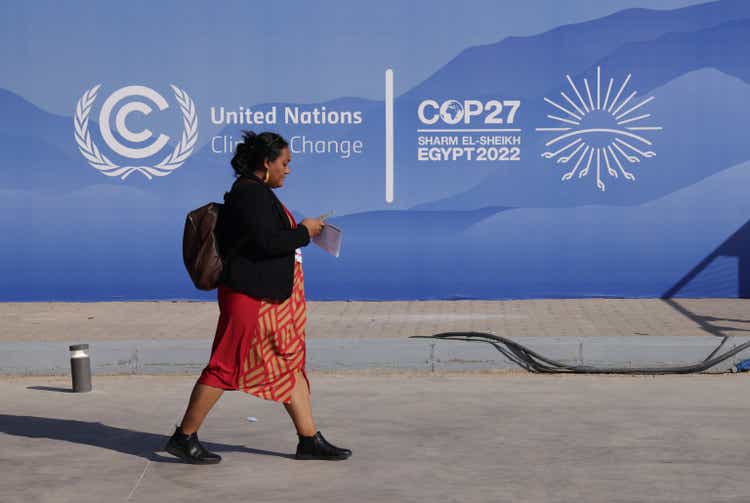Sean Gallup/Getty Images News
Latin American countries will probably present water concerns as an umbrella problem at COP27, linking it to global food insecurity, loss and damage from climate change, and the need to promote sustainable agriculture.
Argentina, Brazil, and Mexico, which account for 23% of global maize production, are experiencing substantial losses because of climate-related issues.
So far in 2022, Mexico has been affected by severe water shortages owing to low rainfall, population growth, and warmer temperatures in its north and northeastern states, leading to production losses estimated at 4 million metric tons of grains.
In Argentina, the third global soybean and maize producer, an estimated 15% of wheat production will be lost this season because of ongoing droughts.
The prospect of lower crop yields, particularly for soybeans and maize, and subsequently higher food prices globally should give the region leverage to step up financing demands from developed countries and push for a sustainable agriculture framework. Latin America is likely to resist any attempts to implement land distribution controls.
African exposure
Sub-Saharan Africa is heavily exposed to climate change-induced weather events and resultant food insecurity, exacerbating land-based conflicts.
Like their Latin American counterparts, most African countries are seeking financing from wealthy countries for loss and damage and to tackle food insecurity and droughts. The US and the EU are more likely to advocate for increased financing for climate mitigation projects instead.
The Global Climate Risk Index 2021 places five sub-Saharan African countries — Mozambique, Zimbabwe, Malawi, South Sudan, and Niger — in the top-10 most at risk over lethal weather events and for their economic effect on GDP and purchasing power parity.
The ongoing drought in Somalia is the worst in 40 years, and the UN anticipates a food emergency in most of the country by December 2022. Neighboring Ethiopia and Kenya are also affected.
Flooding in West Africa in October led to the displacement of 1.4 million people, and regions producing rice have been heavily affected, further contributing to food shortages. Those conditions are likely to exacerbate the risk of conflicts over pasture in countries such as Kenya and Nigeria, which routinely result in deadly violence and the displacement of thousands of people, reducing agricultural and other economic output.
Discussions at COP27 continue to focus on resourcing, financing, and equity questions that predated the Russia-Ukraine conflict. The scope for progress is significantly limited by the fiscal side effects in developed economies of mitigating higher global energy prices.
Editor’s Note: The summary bullets for this article were chosen by Seeking Alpha editors.


Be the first to comment